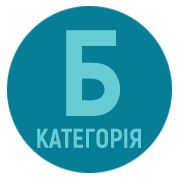THE CONCEPT OF “WEALTH” IN MODERN BELIEFS OF UKRAINIANS: WAYS OF CALLING MONEY
DOI:
https://doi.org/10.32782/2307-1222.2023-55-8Keywords:
modern folklore, narrative, concept ofAbstract
The article considers how the concept of «wealth» is realized in the folklore of modern Ukrainian communities. The term "concept", is the basic theoretical concept for the article. Folklore actively uses this term. We accept the understanding of the concept as a mental unit whose function is to preserve knowledge about the world, culture and communication in the group. The peculiarities of functioning of the concept of "wealth" in modern folklore are determined by social, economic and political factors that affect a person's worldview, determining rational and irrational ways in which he ensures prosperity. It has been analyzed the material collected by the method of questionnaire. It has been established that concepts are represented by means of three forms of expression: attributive, actional and verbal. The concept of "wealth" in modern folklore is realized through the attributive form of expression: coins, red wallet, fixed note/coin; verbal form of expression: sayings during rituals, well-being, magic formulas, etc.; actional form of expression: laying, sowing, planting. It has been proposed an expansion of the content of the concept of "wealth" in Ukrainian folklore, which is based not only on traditional but also on modern material. The study of the concept of "wealth" in modern Ukrainian folklore is an urgent and important task, as it allows to better understand not only traditional national culture, but also ways of artistic expression of modern Ukrainians.
References
Jackendoff R. The Architecture of the Language Faculty. Cambridge (Mass.), The MIT Press, 1997.
Lakoff G. The Invariance Hypothesis: Is abstract reason based on imageschemes?. Cognitive Linguistics, 1990. Vol. 1, N 1. P. 39-74.
Schwarz M. Einführung in die kognitive Linguistik. Tübingen : UTB für Wissenschaft; UniTaschenbücher, 1996. 195 S.
Taylor J. R. Linguistic Categorization. Prototypes in Linguistic Theory. Oxford: Clarendon, 1995. 270 p.
Запис: від К.О.Б., с. Дмухівці, Козівського р-ну (тепер Тернопільський р-н) Тернопільська обл.
Запис: від Л.В.П., м. Тернопіль.
Запис: від М.М.І. м. Тернопіль.
Запис: від П.А.А., с. Старий Олексинець, Кременецького р-ну, Тернопільська обл.
Запис: від С.В.В., м. Тернопіль.
Запис: від С.В.М., с. Медова, Козівського р-ну (тепер Тернопільський р-н) Тернопільська обл.
Запис: від С.І.П., с. Осівці, Бучацького р-ну, Тернопільська обл.
Запис: від С.О.Ф., с. Білявинці, Бучацького р-ну, Тернопільська обл.
Запис: від Ч.О.Б., с. Соснів, Теребовлянського р-ну, Тернопільська обл.
Запис: від Ч.Ю.В., с. Мислова, Тернопільського р-ну, Тернопільська обл.
Запис: від Ш.Н.М., м. Тернопіль.
Запис: від Ю.І.О., с. Повча, Дубенського р-ну, Рівненська обл. 10
Іващенко В. Концептуальна репрезентація фрагментів знання в науково-мистецькій картині світу (на матеріалі української мистецтвознавчої термінології). К.: Видавничий Дім Дмитра Бураго, 2006. 328 с.
Лабащук О. Українська примовка: структура, побутування, функції. Тернопіль : Підручники і посібники, 2004. 154 с.










